Meet the FT top 20 in-house legal leaders

Roula Khalaf, Editor of the FT, selects her favourite stories in this weekly newsletter.
Is the job title “general counsel” out of date? A number of in-house legal team leaders seem to think it no longer reflects the wide-ranging nature of their roles. Others stand by the name, though — defending it as a way to differentiate their role as a protector and an ethical voice within the business.
But, whatever the title, the role for all of them involves both protecting their organisations and taking the growing opportunities to contribute on business strategy.
Over the past month, the Business Legal Leaders series has been scrutinising the evolving role of these legal professionals and hearing their views on the modern legal team.
Now, the FT’s Innovative Lawyers research partner, RSGI, has selected 20 in-house legal leaders who have played an outstanding role in helping their organisations deal with business challenges. These can range from the changing regulatory environment to the wider demands of stakeholder capitalism.
Our legal leaders’ responsibilities have included overhauling old companies, nurturing young start-ups, and dealing with disruption in supply chains and from rivals. Several of the lawyers have taken a lead on diversity and inclusion — not just in their own departments but in their companies, and their industries, as a whole.
Mary Ormerod, content director, RSGI
Profiles compiled by RSGI and FT editors; listed by company name in alphabetical order.
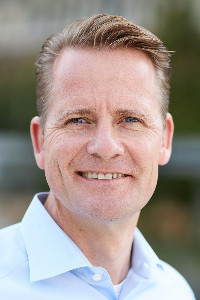
Gabriel Harnier
group general counsel, BAYER
Three years ago, under Harnier’s leadership, the legal team at Bayer, the German pharmaceuticals and life sciences company, moved its contracting, data privacy and compliance activities to a shared services centre.
Harnier wanted to streamline the business’s contracting processes and challenged the legal team to come up with the simplest contract possible. Using document-generation software, the shared services centre now delivers 50 different contract types with minimal human input.
With this new approach, the procurement team, which executes about 10,000 agreements a year, has significantly reduced its workload. Thanks to the fully digital contracting process, the legal team can track obligations automatically and extract new insights from the data.
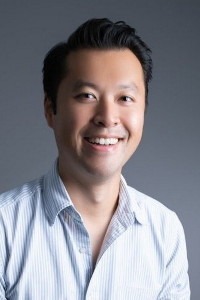
Hon Ng
General counsel, Binance
in a previous role at ride-hailing app Uber, Hon Ng discovered that the challenges a general counsel faces in a disruptive industry are often not legal problems, as such. And this has proved especially true in his current role at cryptocurrency exchange Binance. The biggest challenge, according to Ng, is that the culture of the industry is inherently focused on decentralisation.
He has spent the past two years helping to establish Binance as a mainstream brand, building a corporate structure and stabilising its reputation through safeguarding measures, such as a comprehensive “know your customer” process that checks proof of address and sources of wealth.
Since joining the company in 2020, Ng has expanded the legal team from four to more than 80 employees. His priority has been hiring the right people, particularly those with experience working for regulators or governments. Ng is more than a traditional in-house risk adviser and, likewise, he expects his team to be commercial leaders, engaging with external stakeholders and helping the business grow.
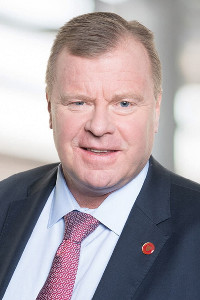
Jan Gustavsson
General counsel, Coca-Cola hbc
In a survey this year to measure internal customer satisfaction in different business areas, the legal team scored highest out of all departments. Jan Gustavsson puts this down to the department’s team spirit and entrepreneurial culture.
Now, his priority is people development. He has connected the legal department with its peers in other Coca-Cola companies through “cross-company practice groups”, in which the lawyers share ideas on key topics. This has been a useful training tool and enabled people from his team to move into more senior roles in the wider company.
In his 22 years as general counsel, Gustavsson has broadened the legal function’s remit to include enterprise risk management, security, and corporate development. He has also driven digital changes in the legal team, including the development of contract management software.
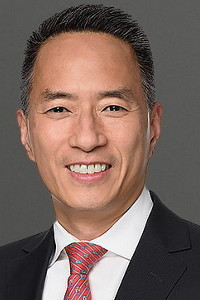
John Kim
General counsel, Cognizant
John Kim’s message to aspiring in-house legal leaders is that success depends on “soft skills” — particularly an ability to build consensus across disparate groups. At Cognizant, the technology and business services company, he says the culture is entrepreneurial by nature and requires this approach rather than top-down decision-making.
Kim is also an advocate for diversity and inclusion initiatives both across the business — which has nearly 350,000 employees — and in his own team. He views mentorship as the best tool to drive change in this area.
To manage the day-to-day workload, Cognizant uses contracting software which helps make drafting and matter management more efficient, and Kim’s ambition is for robotics and artificial intelligence to handle more of this process in the next few years. He has also overseen the growth of the offshore legal team, expanding its footprint globally so that matters can be handled more quickly by lawyers working across different time zones.
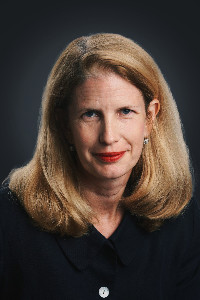
Alison Zoellner
Global general counsel, Dentsu International
Alison Zoellner has direct experience of transformation, having started as an in-house lawyer at the New York Times Company just as the internet upturned the media. Now at Dentsu, the advertising group, Zoellner and her team have to keep up with an industry that moves ahead at speed. For example, customer experience management involves new challenges, such as data privacy regulation.
And digital advertising is such a crowded marketplace that the pressure to deliver value for money is relentless. She encourages her team to learn new skills, noting how she has been helped by the overlap between crypto law, needed in the metaverse, and derivatives law, which she learnt during a spell at Honeywell, the US conglomerate.
Zoellner is most aware of the customer experience, ensuring that her team understands the real-world risks in contract talks and the need to avoid delays. She aims to improve the user experience and is implementing digital tools, such as contract review, using artificial intelligence.
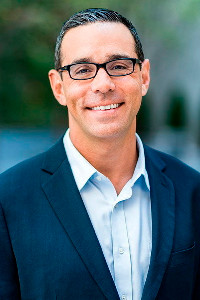
Jonathan Leiken
Chief legal officer, Diebold Nixdorf
Jonathan Leiken says predictions of the demise of the ATM cash machines that his company manufactures are exaggerated. Despite the consumer shift to digital payments, demand for cash has remained steady. The greater threat to the business, he says, is the reliability of the supply chain for computer chips, which is a main focus for his team.
Diebold Nixdorf has also moved into producing self-service checkouts for shops, as well as servicing vehicle charging stations. This can present complex legal challenges, from understanding ownership of the hardware to figuring out how customer data is processed. Within the legal department, he has introduced artificial intelligence for contract review and expanded flexible working.
In addition, Leiken teaches a class on “the role of the modern GC” at Ohio State University law school. His message is that this “has expanded to be the company’s teacher and problem solver”. He is responsible for ESG policies at Diebold Nixdorf, as well. Having spent his early career working as a public prosecutor, Leiken sees a direct line between public service and part of his current role — which is showing the group’s employees and investors that it is a responsible corporate citizen. As an example, he cites the company’s decision to condemn publicly the January 6 attack on the US Capitol in 2021.
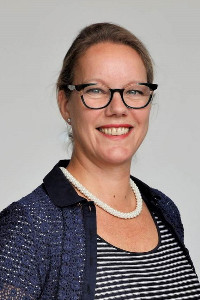
Maaike de Bie
Group general counsel, easyJet
Maaike De Bie’s first year as general counsel at airline easyJet required a cool head amid mounting existential crises: a big cyber security breach; conflict with Stelios Haji-Ioannou, the company founder turned activist shareholder; setting up a separate airline for intra-European flights post-Brexit; stringent travel bans and other effects of the pandemic; and managing complex new laws and regulations.
Outside the company, she also worked with the rest of the travel industry to negotiate new rules with governments, and raised funds to keep the airline afloat. Internally, she was negotiating with shareholders and unions to raise extra capital and cut costs.
Amid the turmoil, de Bie has kept an eye on the future. She established a values statement for the legal team, based on the principle that staff should be judged not just by what they deliver but also how they deliver it — for example, communicating within standard working hours. De Bie has reviewed how the department works with external advisers, too, to create a “legal community” of law firms to collaborate with her team and each other.
De Bie is involved in the airline’s sustainability programme, as well, which involves carbon offsetting investment and exploring alternative fuels, such as hydrogen, for short-haul flights. De Bie has been appointed to take up the post of group general counsel for the telecoms firm Vodafone in March 2023.
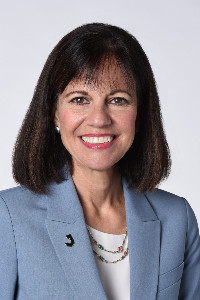
Joanne Caruso
Chief legal and administrative officer, Jacobs
Since joining the legal team at Jacobs 10 years ago, having previously been a litigation lawyer, Joanne Caruso has worked across various business areas. For example, she moved from legal to run human resources in 2017 before taking on a newly created chief administrative officer role in 2018. Legal responsibilities were added back in a year later.
The remit is wide: Caruso also has responsibility for enterprise risk management, ethics and compliance, operational centres of excellence, health and safety, and the security and equality departments. Until recently, she managed the company’s sustainability agenda and now continues as its executive sponsor.
One of her biggest impacts in the organisation, says chief executive Steve Demetriou, has been in helping to transform the culture of the global professional services company, which is spread across 400 offices, and contributing strategic insights.
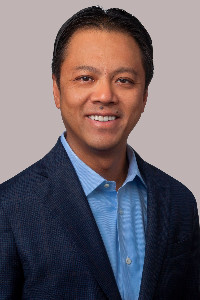
Alan Tse
Chief legal officer, Jones Lang LaSalle
Alan Tse says the main purpose of a top in-house lawyer is to protect the company’s reputation. He has a nuanced understanding of the role, having served in a similar capacity at five previous companies, including start-ups, before joining Jones Lang LaSalle four years ago.
Tse’s remit at the real estate management company includes compliance and ethics, risk management, and business continuity planning.
He has focused on breaking down silos both in his team and in the wider business — for example, by encouraging his team to be more proactive about risk management and to help colleagues embrace compliance. The legal team is also heavily involved in the reporting and governance aspects of the company’s sustainability agenda and was instrumental in implementing its sanctions policy.

Rob Mobassaly
General counsel, Juniper Networks
Beyond day-to-day legal work for IT network company Juniper, Rob Mobassaly’s team is busy helping the business with government affairs, sustainability issues, and social justice concerns. In his view, legal is uniquely well placed to oversee these company-wide efforts from its central point: facilitating collaboration, designing concrete deliverables, and ensuring accountability. His team, for example, helped the company design its plan for achieving carbon neutrality goals it set out last year.
Mobassaly inherited a comprehensive automation programme in the department, with legal technologists helping to make contracting and legal support services more efficient. Now, he wants to use data to go further. His team is working with the intellectual property department to analyse patent data and discover which demographics have been inventing the newest products. The aim is to discover ways in which the company can address its gender imbalance in engineering.
In general, Mobassaly’s priority as a leader is to improve the experience of working in legal. He says he favours a scientific approach: writing a problem statement, developing hypotheses, then experimenting. This helps lawyers both to think more creatively and to work with scientific colleagues.
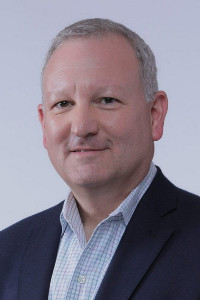
Pierre Gentin
Global general counsel, McKinsey & Company
Pierre Gentin’s goal is to develop a high-performing legal team that matches the calibre of McKinsey’s external brand, even though the team’s work is mostly internally facing. To achieve this, he has helped the team take ownership of its core objectives: providing a proactive and responsive service; protecting the firm; and having a strategic partnership with the business.
He believes that the way to build a dynamic legal function is to help people go beyond professional excellence and have them bring the passion and energy from their personal lives into work. He encourages them to share their own interests, like music or running, as a way of building community in the workplace
When Gentin joined the company, he restructured the legal team to make it more nimble and multidisciplinary. The team has piloted automation tools for core legal documentation and implemented “agile” organisational ideas, which helps to manage business requests in different areas of expertise.
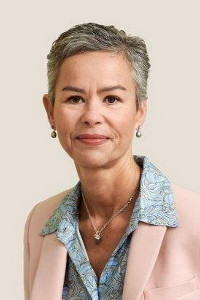
Caroline Pontoppidan
General counsel and head of corporate affairs, Maersk
In Pontoppidan’s six years as group general counsel at Maersk, the global logistics company has had to deal with the challenges of the Covid-19 pandemic and Russia’s war in Ukraine. And when supply chains suffered interruptions as a result, Maersk’s legal team was needed to resolve problems.
Pontoppidan also keeps an eye on the future. She manages relations with governments, both as head of public affairs and by overseeing compliance. Besides addressing the legal questions, Pontoppidan also works with governments on the resilience of supply chains.
The company plans an acquisition in China that will mean closely watching US-China relations and forthcoming regulation in Beijing. Last year, Pontoppidan worked on Maersk’s order for eight carbon-neutral ships.
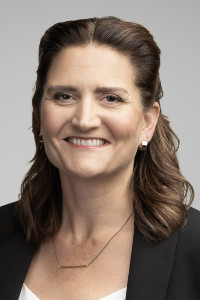
Ann Miller
General counsel, Nike
In addition to leading the legal team at Nike, Ann Miller is responsible for government affairs, social and community impact, and the resiliency team, which addresses business continuity.
Miller encourages the lawyers to be proactive and has defined the legal team’s purpose as “to power and protect Nike’s competitive advantage”. The company’s approach to product design is an example of this, as the legal team works closely with product designers — sometimes years before there is a prototype — to ensure that intellectual property is captured and leveraged to its full potential.
To free up time for the lawyers to focus on these high value tasks, Miller has invested in contract management. Through a combination of technology, process and outsourcing, a team of four lawyers in the technology department can manage several thousand contracts per year.
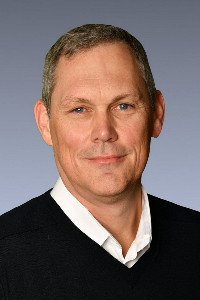
David Flavell
Chief legal officer, PepsiCo
David Flavell’s aim when embarking on an in-house legal career was to work in a variety of overseas destinations. So far, his work has taken him to Australia, New Zealand, Shanghai and Dubai, and he is now based in New York, where he joined PepsiCo last year.
Flavell leads a global team of nearly 400 at the food and beverage company, where he is responsible for legal, compliance and ethics and also works closely with the board and audit committee. Trained in mergers and acquisitions, he has been instrumental in many of PepsiCo’s key transactions, such as the recent sale of a majority stake in its Tropicana and Naked Juice brands and the $3.2bn deal to buy carbonated drinks company SodaStream in 2018.
The legal function has also been heavily involved in the sustainability agenda at PepsiCo, from supporting the business in its move to recyclable plastic to its announcement of an ambitious goal to regenerate farming practices across its agricultural footprint by 2030. Flavell is additionally pushing the digital transformation of the legal function and has appointed a new legal operations head.
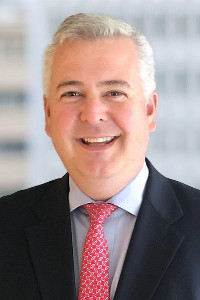
Dan Gallagher
Chief legal officer, Robinhood
Dan Gallagher aims to keep the legal team “lean and mean” at Robinhood, the no-fee online brokerage that he joined in 2020. He believes that a disruptive fintech requires a small group of lawyers who know their subject inside out. He attracts the best talent by encouraging remote and hybrid working. He has also thinned out Robinhood’s panel law firms and encouraged those still on the books to talk directly to company executives.
Gallagher served as a commissioner at the US Securities and Exchange Commission for four years to 2015. That experience gave him a sharp understanding of the regulatory issues that face Robinhood. It also taught him how to stay calm in a crisis and led to an appreciation of Robinhood’s aim to widen access to financial markets. Purpose-led decision-making is helpful for his job, Gallagher says.
From the GameStop crisis of January 2021, when Robinhood curbed access to trading in the company’s shares, to Robinhood’s initial public offering seven months later, he has found that a clear mission makes fast decisions easier. His time in government also taught him how to handle external affairs and communications, which he oversees at Robinhood.
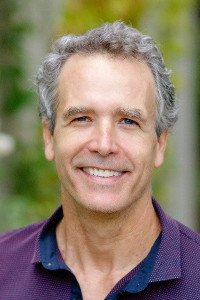
Todd Machtmes
Executive vice-president and general counsel, Salesforce
The general counsel of cloud-based software company Salesforce prioritises values of trust and customer focus in the legal team. When Todd Machtmes joined the company in 2005, there was no model for how to build a legal department for a software-as-a-service business, he recalls. So the legal team was often guided by the company values in its decision-making, which has led to outcomes such as clearer terms about a customer’s rights in a contract.
Today, the team is often called on to advise on cutting edge issues such as data transfer laws, which are of critical importance to a business such as Salesforce. Lawyers in his team are working to influence future privacy regulations in Europe and the rest of the world, such as a proposed new version of the “privacy shield” that would allow cross-data transfers between Europe and the US.
Data privacy expertise is in high demand, and Machtmes says Salesforce’s reputation as an innovative and values-based company has been important in attracting and retaining talent.
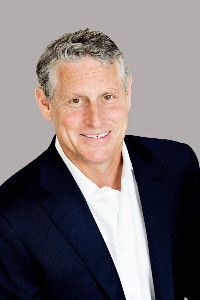
Peter Wexler
General counsel, Schneider Electric
As incoming GC in 2009, Peter Wexler and his team created an ethics charter for Schneider Electric, the French electrical equipment group. Generally perceived then as “‘nice to have”, the charter enabled the firm to remain ahead of the curve as environmental, social and governance (ESG) principles became more widely embraced. The ethics charter now forms part of Schneider’s essential training for all staff and Wexler credits it as one of the foundations of its award-winning ESG policies.
More recently, Wexler navigated the ethical quagmire of securing the business’s departure from Russia by selling its Russian interests to local management.
This year, the company is rolling out many of the solutions Wexler’s team has been collaborating on with the digital team, including a contract lifecycle management tool and a tool to streamline export controls compliance. Wexler says that greater use of tech bolsters its ethical stance, because “technology fosters transparency, and transparency builds trust”.
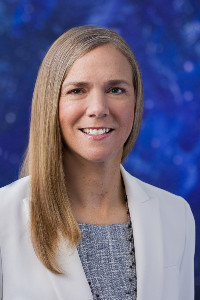
Stephanie Burns
General counsel, Sony Interactive Entertainment (PlayStation)
Stephanie Burns joined PlayStation, Sony’s gaming division, from Amazon having previously worked for ticket reseller StubHub and two start-ups. These roles have taught her that focusing on a good customer experience can help legal teams to achieve better results.
Burns encourages her team to sample PlayStation games. She says that understanding the legal implications of the technology is important, especially as Sony moves into virtual reality and the metaverse. Burns also works on the company’s government relations, talking to politicians about intellectual property, privacy and online safety.
She is a board member for ChIPS, an organisation that supports women in tech, law and policy, and is executive sponsor for an employee group, Able@PlayStation, which promotes accessibility.
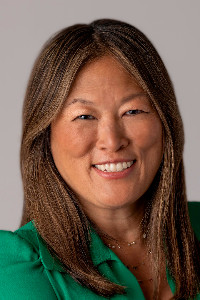
Amy Tu
Chief legal officer, global governance and corporate affairs, Tyson foods
Amy Tu’s role at the US meat supplier is focused on developing a strategic approach to risk that works for the entire business. This has involved taking on a broad remit in areas from health and safety to the environment and aviation.
Tu says that close integration of the operations and legal teams is vital in a long-term risk strategy: “[Risk management] is an ongoing, living discussion,” she explains.
Tu, who has been at Tyson since 2017, is an entrepreneurial thinker whose experience includes a stint as president of Tyson Ventures — an investment unit that funds disruptive food technology companies, such as those creating plant-based alternatives to meat. That experience helped her team think differently about risk, she says.
She has prioritised keeping high-value work in-house so that the team benefits from their involvement in the outcome of cases, and understand the business context. In 2020, she launched a six-pronged strategy to promote diversity.
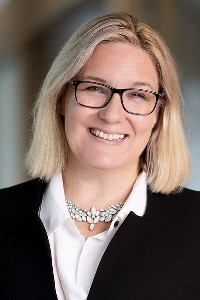
Shannon Finch
Group general counsel, Westpac
Shannon Finch became group general counsel of Australian bank Westpac last year, when it was still managing the fallout from the 2017 Royal Commission into banking misconduct, which led to a number of high-profile cases against the bank. Finch made it her department’s goal to reach settlements in all outstanding cases brought by the regulator — the Australian Securities and Investments Commission — this year. This required changing the bank’s relationship with the regulator by becoming more transparent, and having a better understanding of the issues that matter most to the regulators and the courts.
Finch’s aim as head of legal is to focus on deep expertise and building “centres of excellence” with small, agile teams that cover a variety of skill sets. In her view, a smaller team is better at staying connected, building connections with the business and adapting quickly to changing markets.
Technology is her other big focus. Her goal is to see legal services integrated with the bank’s core software platforms, so that staff across the bank can use self-service tools without needing to go to a special legal technology platform.
Comments